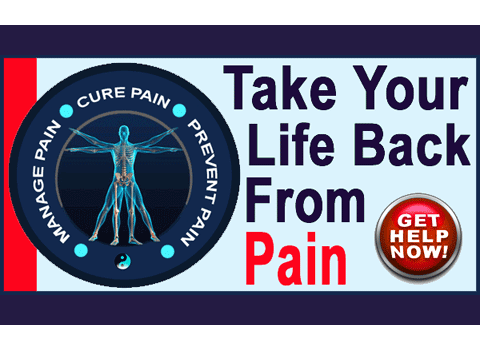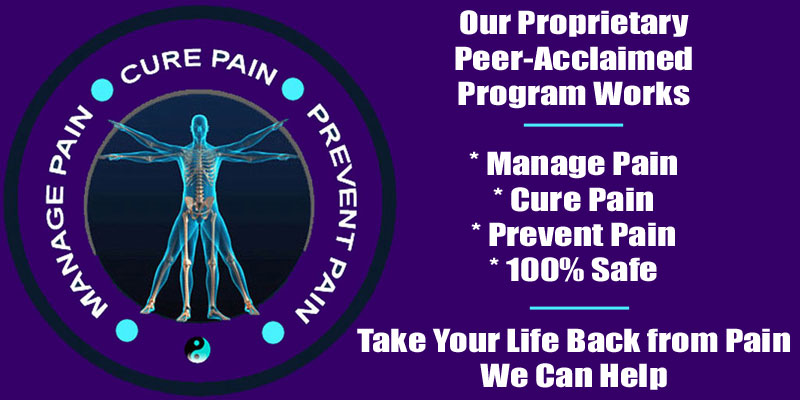
The psychology of sciatica is the most overlooked aspect of chronic radicular lower body and leg pain. While the physical ramifications of sciatica are always in focus, most patients and doctors neglect to consider the very damaging emotional consequences of the condition.
Sciatica is known to be a chronic health concern. Most patients do not suffer a single episode of sciatica and then remarkably recover. Instead, the vast majority of sciatica patients cite years of enduring pain. It is no wonder that sciatica is well known to have profound negative effects on the psychological state of virtually every patient.
Chronic pain, in any form, can create more functional limitations due to the mental component of the diagnosis, than it can due to purely physical reasons. Chronic pain sufferers are often rated as being less functional than people who have suffered far worse injuries and disabilities, such as the loss of one or more limbs. Why is chronic sciatica pain so disabling? Why do patients suffer more from the emotional repercussions than the purely anatomical concomitants?
This commentary delves deeply into the psychological realm to help patients and care providers to better acknowledge and treat the emotional ravages of long-term sciatic nerve symptoms.
Emotional Psychology of Sciatica
Chronic pain has long been recognized to affect the mind as much, if not more, than the body. Countless studies have been commenced and completed, proving definitively that lasting symptoms, regardless of location, will produce negative psychological states. Below are listed many of the possible and common consequences of chronic sciatica that are perpetrated upon the emotional mind of the individual:
Chronic pain causes withdrawal from society, interpersonal relationships and vocational aspirations. Some patients simply do not have the ability to contend with these added pressures while coping with the toll of daily severe pain. It is common for patients to lose jobs, lose love bonds and lose friends once they realize that their pain is not going away.
Sciatica can cause widespread physicophobia, leading to limited physical functionality as well as malaise and listlessness. The body is designed to move, not sit idly. Fear of motion and activity will have far-ranging effects on mind and anatomy.
Chronic pain causes insomnia, which in turn causes a variety of mindbody effects, including mental clarity issues, memory problems, immune dysfunction and even psychopathic thoughts, in extreme instances.
The collateral damage of pain enacts a reduction in self-esteem, while the physical changes of a sedentary lifestyle can markedly reduce positive body image. Patients begin to view themselves as defective, damaged and worthless.
Chronic sciatica causes fear on many levels. Patients fear that there is something terribly wrong with them. They fear for their personal, financial and family future. Patients fear the condition itself, which ironically exacerbates the symptoms. The cycle of fear and pain are inherently linked and mutually aggrandizing.
Chronic pain is a known source of depression and chronic fatigue. Patients literally lose the desire to do anything and some surrender the will to live.
Enduring sciatica often leads to pharmaceutical addiction and abuse. This can lay the foundation for more damaging and illicit behaviors, particularly when doctors discover the dependency problem and cease providing opioid prescriptions. Many patients end up in a deep hole of addiction to the worst possible substances. These programmed behaviors can endure for life, once ingrained.
Psychology of Chronic Pain Problems
The section above lists just some of the many possible ramifications of long-term sciatica syndromes. While these effects seem terrible to endure, they actually are only the tip of the proverbial iceberg and often generate far worse eventualities, such as the examples detailed below:
Long-lasting depression and the resulting self-esteem problems can become permanent parts of the personality, even if the sciatica symptoms decrease in severity over time or are cured through drastic means.
Chronic sciatica patients are usually marginalized to the fringes of society. Many will not enjoy the benefit of continued care from family or friends, while the majority will lose the support of their doctors, who are known to simply give up on chronic pain sufferers.
Patients who have suffered dependency issues from pharmaceutical products are often left to fend for themselves. These patients often can not participate in traditional forms of substance abuse rehabilitation and often degenerate into illicit behaviors and criminal activities.
Suicide is incredibly common among chronic pain sufferers. Many victims leave notes stating that life has lost all positivity and that they will indeed be better off dead. This complete abandonment of all hope is the pinnacle of psychological torment and results in the ultimate loss for society; a human life.
Psychology of Sciatica Solutions
The first step in dealing with the psychological consequences of chronic sciatica is surely to acknowledge the very real fact that the mind and body effects of the condition must both be treated. Doctors and patients can not focus exclusively on the physical realm and ever expect a full recovery to be attained. Doctors need to be better trained to recognize the emotional effects of chronic pain and provide interventions for the problems that enduring symptoms are well known to create.
Meanwhile, patients, and their support structures, must be warned in advance of the ramifications of long-term pain and should be prepared to deal with these affective issues as they come up.
There are many positive ways to counteract the negative effects of enduring pain. However, some of these processes can be detrimental to the long-term progress made by the patient in returning to a normal life. Therefore, we recommend the following coping strategies to help patients deal with the mindbody trauma of sciatica:
Coaching is a great way for patients to set and achieve goals. With proper guidance, patients can realize that they are not disabled, despite their pain. Chronic pain coaching can set the right emotional tone to even induce functional recovery, despite persistent pain.
Knowledge therapy might help to reduce the severity of pain or may cure it altogether. It is amazing how few patients realize the psychological contributors to their symptoms. Dealing with the emotional origins of chronic pain is a holistic way of achieving partial or total recovery.
Simple open communication is the easiest and most effective way to help patients deal with the emotional ravages of sciatica. Patients must acknowledge and express their innermost feelings, fears and anxieties in order to be free of them. Finding an open ear is as easy as reaching out to a friend or family member, entering psychological counseling or joining a patient support group.
Regardless of how a patient chooses to cope with the toll of chronic pain, the only truly catastrophic choice is to ignore the mind in favor of focusing exclusively on the body. This path typically results in abysmal treatment outcomes, failed surgery and ever-growing psychological problems that are likely to become health and life threatening.
Sciatica > Alternative Medicine for Sciatica > Psychology of Sciatica






